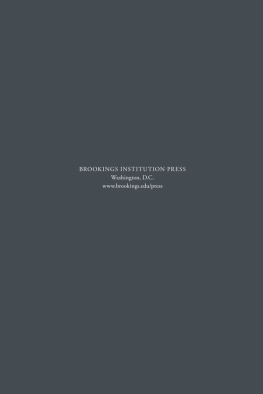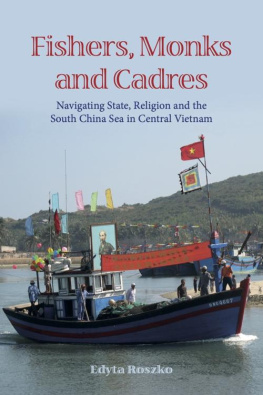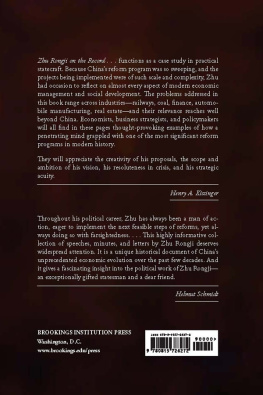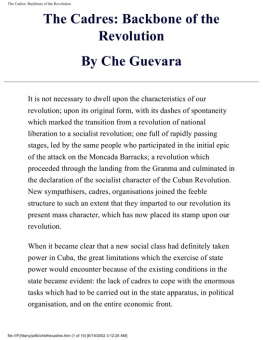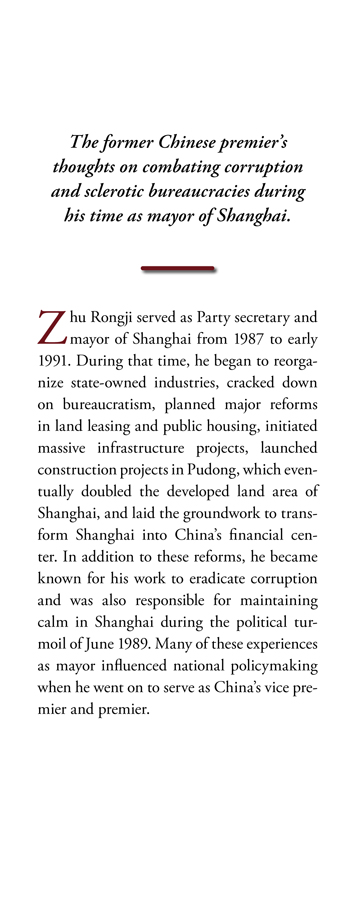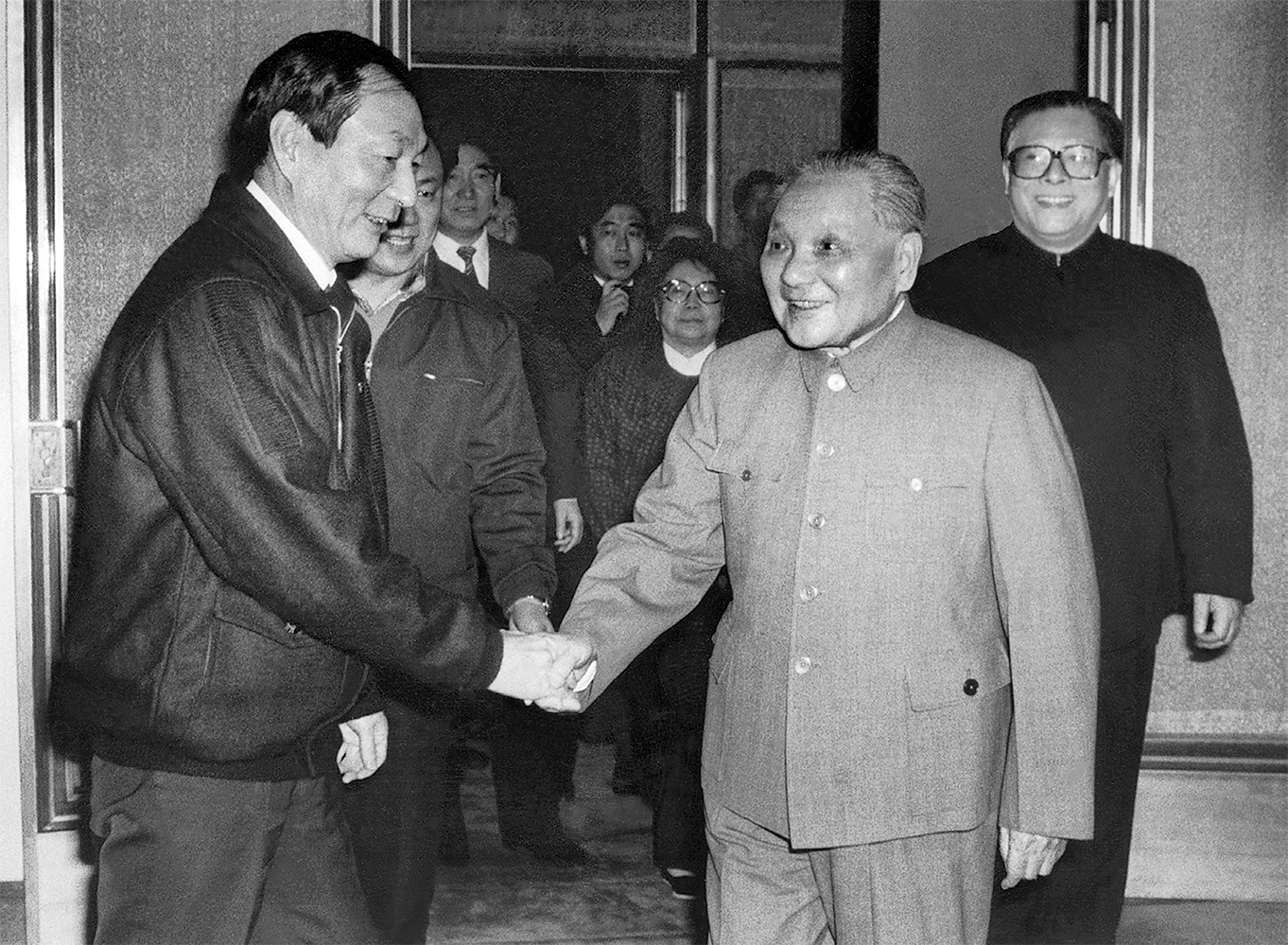
On February 5, 1989, Jiang Zemin and Zhu Rongji accompanied Deng Xiaoping to a Spring Festival celebration with other leading Shanghai Party, government, and military leaders and representatives of all walks of life.
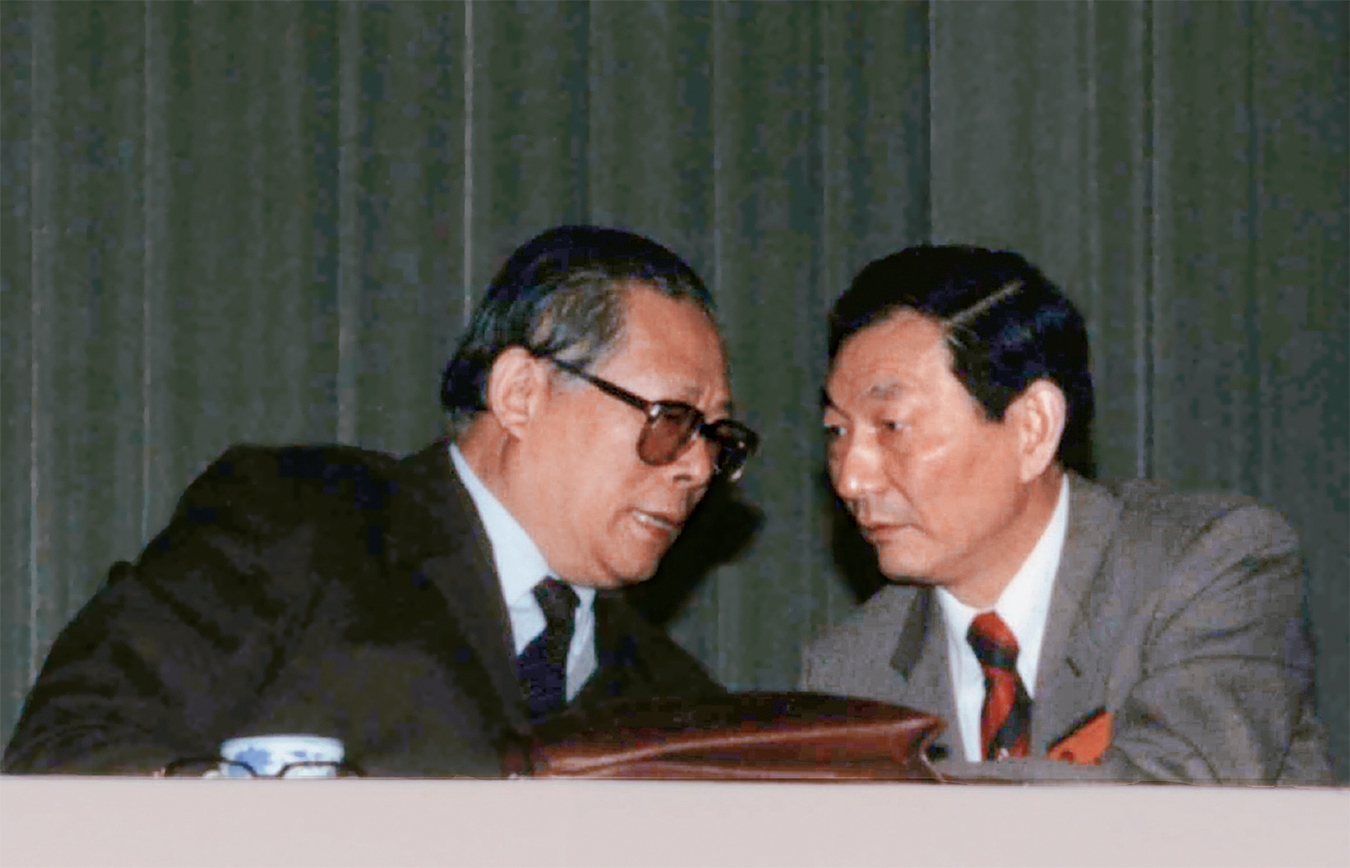
Jiang Zemin and Zhu Rongji in close conversation on the rostrum of a session of the Ninth Shanghai Peoples Congress, April 1930, 1988.
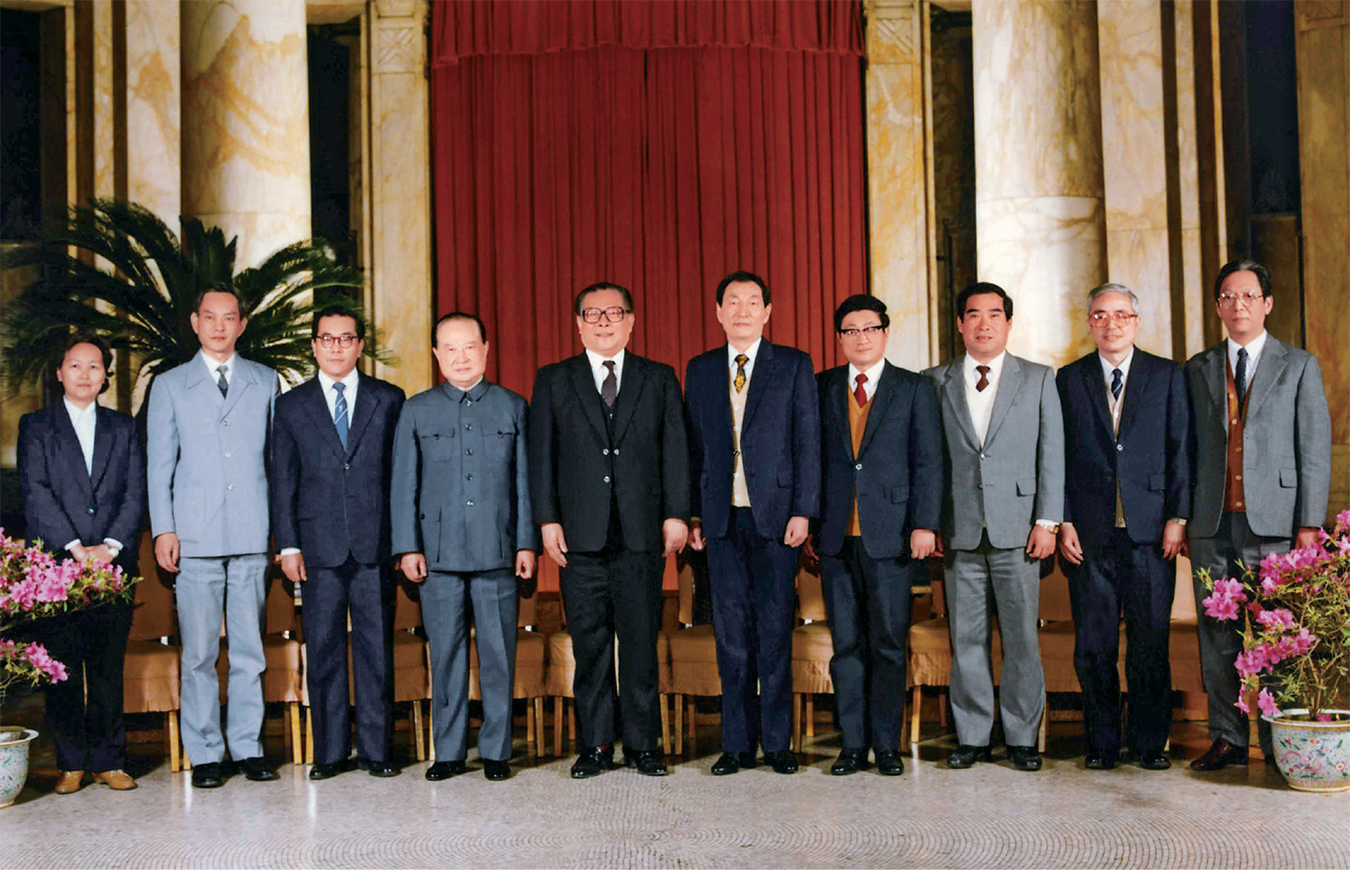
Jiang Zemin and Zhu Rongji in a group photo with members of the Shanghai municipal government, April 18, 1988. Left to right: Vice Mayor Xie Lijuan, Vice Mayor Ni Tianzeng, Vice Mayor Li Zhaoji, municipal government adviser Wang Daohan, Jiang Zemin, Zhu Rongji, Vice Mayor Huang Ju, Vice Mayor Liu Zhenyuan, Vice Mayor Ye Gongqi, Vice Mayor Qian Xuezhong.
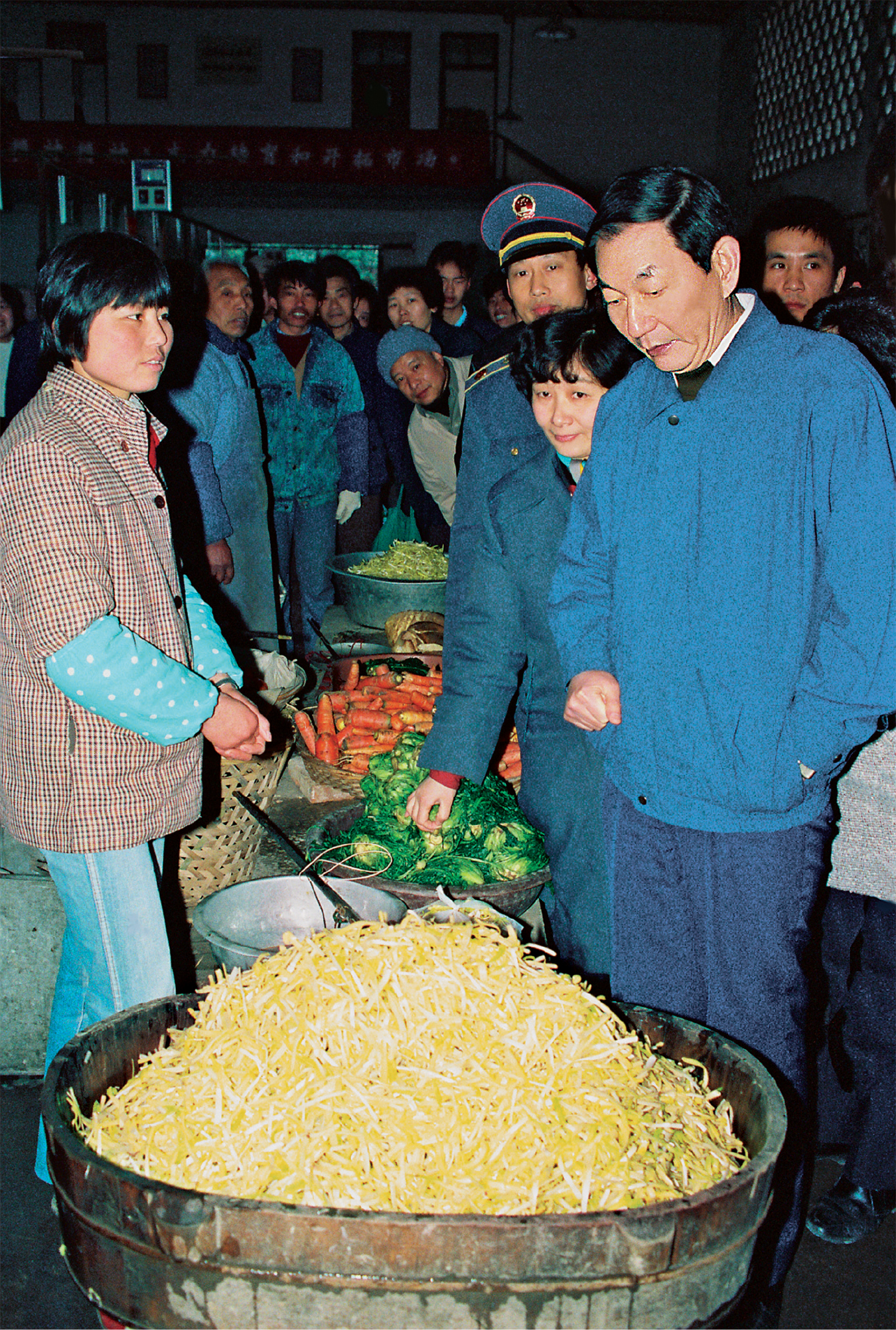
On an inspection tour of the Jiading County trading center for agricultural and sideline products, Shanghai, March 3, 1990.
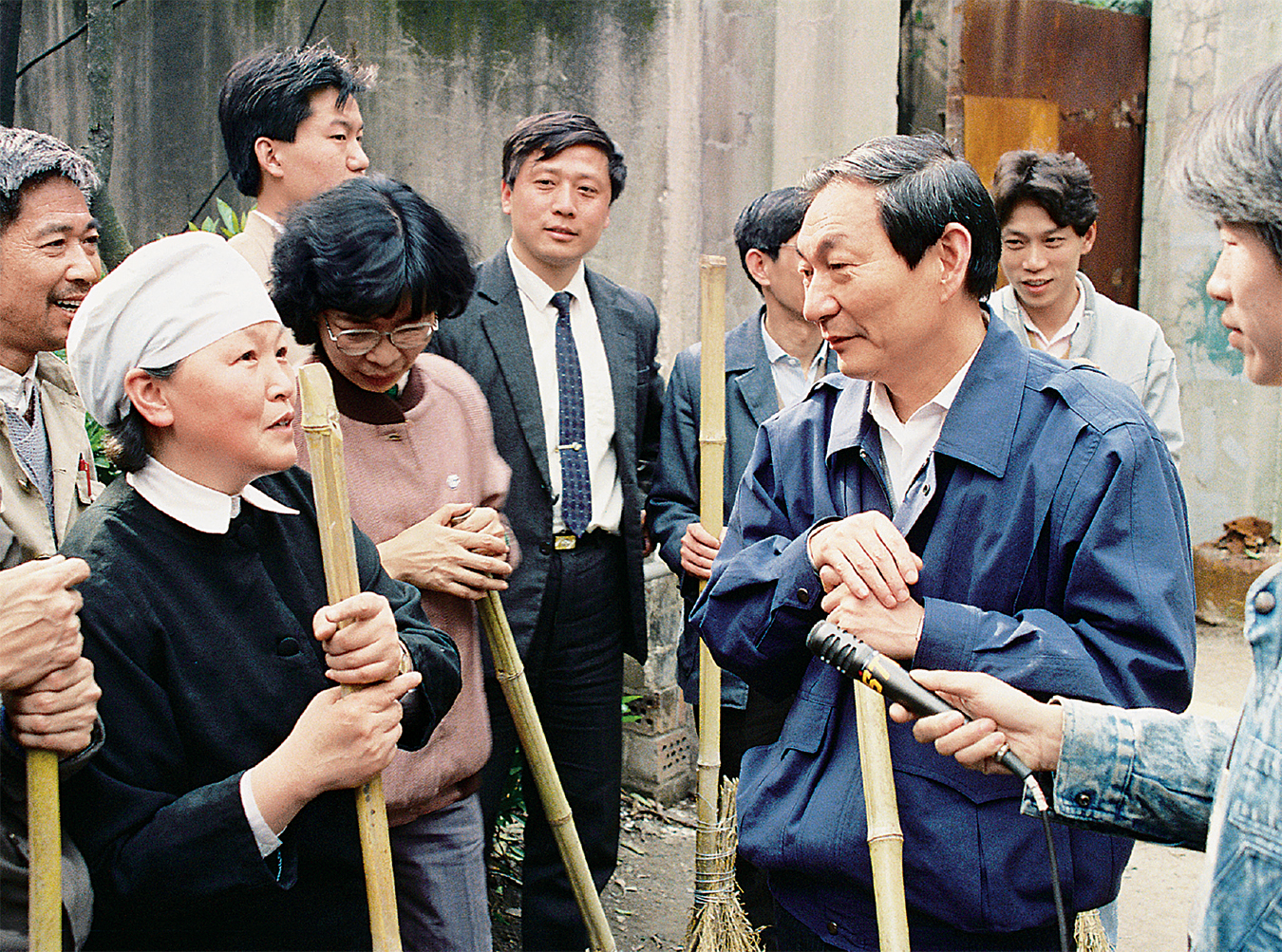
In friendly conversation while participating with cadres and government staff in Shanghais Patriotic Hygiene Month activities, April 14, 1990.
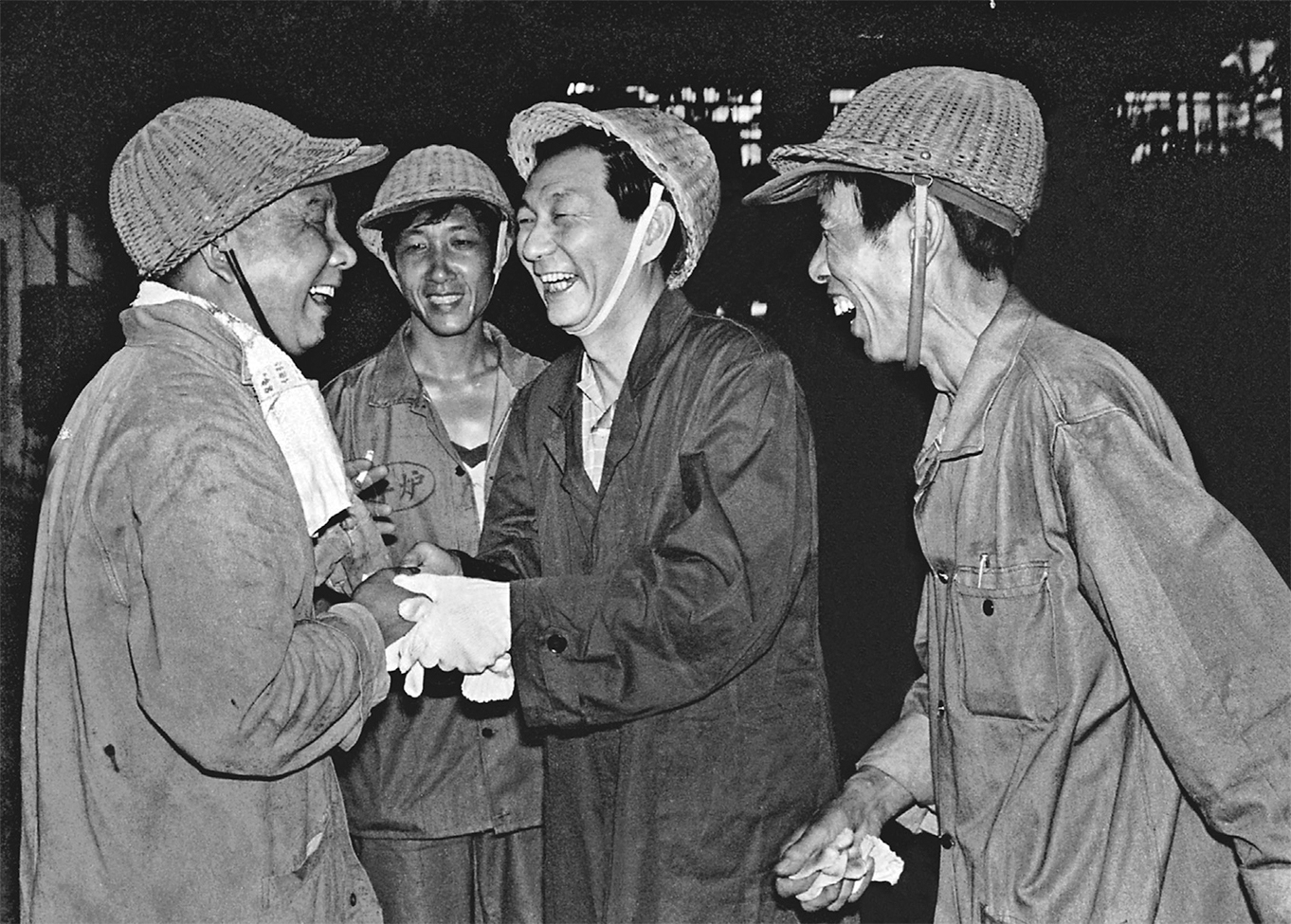
Visiting men working in high temperatures during an inspection tour of Shanghai No. 3 Steel Mill on July 9, 1988. First from right, Ni Dingxing, director of the open-hearth mill; second from left, Ma Guoxing, Party secretary of the open-hearth mill.
ZHU RONGJI
ON THE RECORD
The Shanghai Years
19871991
Zhu Rongji
Translated by June Y. Mei
BROOKINGS INSTITUTION PRESS
Washington, D.C.
BROOKINGS INSTITUTION PRESS
Washington, D.C.
Copyright 2018
Foreign Languages Press
Beijing, China
All rights reserved. No part of this publication may be reproduced or transmitted in any form or by any means without permission in writing from the Brookings Institution Press, 1775 Massachusetts Avenue, N.W., Washington, D.C. 20036
www.brookings.edu
The Brookings Institution is a private nonprofit organization devoted to research, education, and publication on important issues of domestic and foreign policy. Its principal purpose is to bring the highest quality independent research and analysis to bear on current and emerging policy problems. Interpretations or conclusions in Brookings publications should be understood to be solely those of the authors.
Library of Congress Cataloging-in-Publication data
Names: Zhu, Rongji, 1928
Title: Zhu Rongji on the record : the Shanghai years, 19871991 / Zhu Rongji ; translated by June Y. Mei.
Other titles: Zhu Rongji Shanghai jiang hua shi lu. English
Description: Washington, D.C. : BROOKINGS INSTITUTION PRESS, 2018. | The Chinese edition of Zhu Rongji on the Record: The Shanghai Years was jointly published in August, 2013. | Includes index.
Identifiers: LCCN 2017054446 (print) | LCCN 2017056627 (ebook) | ISBN 9780815731405 (ebook) | ISBN 9780815731399 (hardcover : alk. paper)
Subjects: LCSH: Zhu, Rongji, 1928 | Shanghai (China)Economic policy. | Shanghai (China)Economic conditions20th century. | Shanghai (China)Social policy. | City planningChinaShanghai.
Classification: LCC DS779.29.Z478 (ebook) | LCC DS779.29.Z478 A5 2018 (print) | DDC 951/.132058092dc23
LC record available at https://lccn.loc.gov/2017054446
9 8 7 6 5 4 3 2 1
Typeset in Minion Pro
Composition by Cynthia Stock
Silver Spring, Maryland
CONTENTS
P UBLICATION N OTE
The Chinese edition of Zhu Rongji on the Record: The Shanghai Years was jointly published in August 2013 by the Peoples Publishing House and the Shanghai Peoples Publishing House. The book covers the period from December 1987 to April 1991, when Zhu served as Shanghais deputy Party secretary, mayor, and then concurrently as Party secretary. It includes 106 of his speeches, conversations, directives, and letters, along with 83 photographs and reproductions of 9 directives and letters, the great majority of which were hitherto unpublished. In his Speech at the First Plenary Session of the Ninth Shanghai Peoples Congress (), Zhu revealed some of his personal tribulations for the first time.
The contents of this book were edited from audiovisual materials, transcripts, and manuscripts, most of which are being published in English for the first time. Some brief annotations have been added by the editors and translator, and most captions and subheadings were added by the editors. Because transcripts were unavailable in the original languages, remarks by foreign guests in conversations with the author have been translated from the Chinese edition. All chapters were personally reviewed by Zhu Rongji.
A CKNOWLEDGMENTS
Senior Party and government leaders have offered valued advice for the publication of this work, and guidance for its editorial work was provided by certain central government departments as well as by some local government authorities. Many materials and photographs were supplied by the Municipal Party Committee and municipal government of Shanghai and some of the latters agencies. The Peoples Publishing House and the Shanghai Peoples Publishing House greatly assisted in the publication of this edition. The contributions of all the above are gratefully acknowledged.
Li Bingjun, Lian Yong, Zhang Changyi, Xie Bingham, Lin Zhaomu, Gao Xiaozhen, Lu Jing, and Hou Chun participated in the editorial work; Zhang Linjian, Huang Jiale, and Zheng Xinyi made specific editing and compilation suggestions; Ma Dongsheng and Li Lijun assisted in the compilation of materials.
I NTRODUCTION
Zhu Rongjis tenure in Shanghai coincided with the critical period when the focus of Chinas economic reforms shifted from rural areas to the cities, and when the economic system itself was in transition. For various domestic and international reasons, reform, development, and stability encountered great difficulties and daunting challenges. In Shanghai, Chinas largest industrial city, old problems left over from the past overlapped with and were intertwined with new ones that emerged during the economic transition. The city was confronted with severe and complex issues due to two major problems: a sharp drop in fiscal revenues and excessive debts incurred for urban construction. Led by then Municipal Party Secretary Jiang Zemin, Zhu, together with the leading members of the Municipal Party Committee and municipal government, organized the citys administrators and populace to forcefully promote reforms, improve livelihoods, and stabilize and develop the economy. Within a relatively short time, major socioeconomic changes took place that laid a solid foundation for Shanghais subsequent reforms and development.
The Shanghai Years is an important record of this unique period. It clearly traces the course of the citys reforms and offers the reader a more comprehensive look at this phase of Chinas reform and modernization, as well as a deeper understanding of the theory and practice of socialism with Chinese characteristics.

